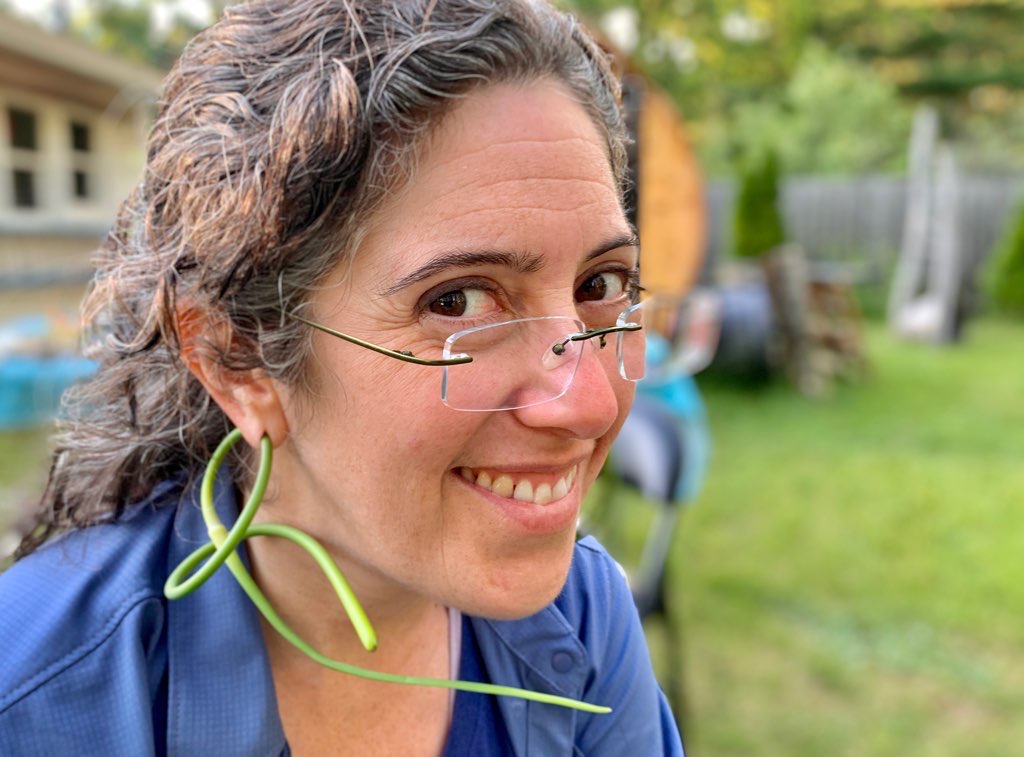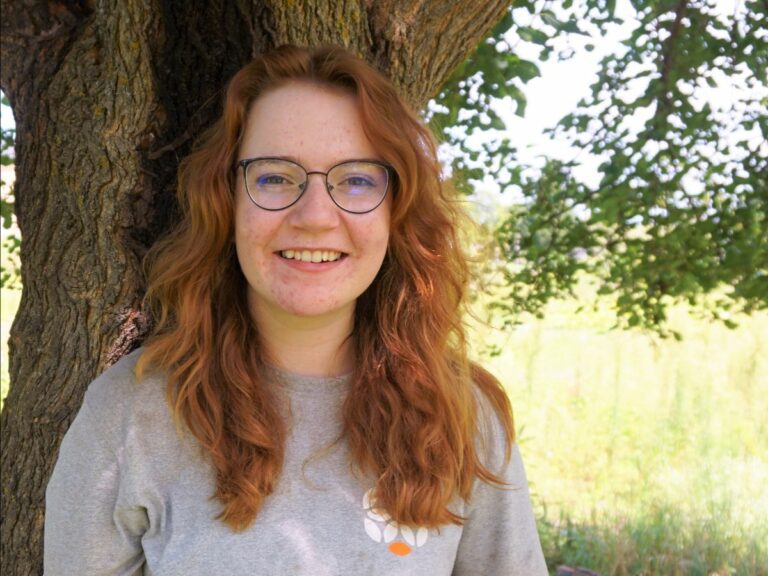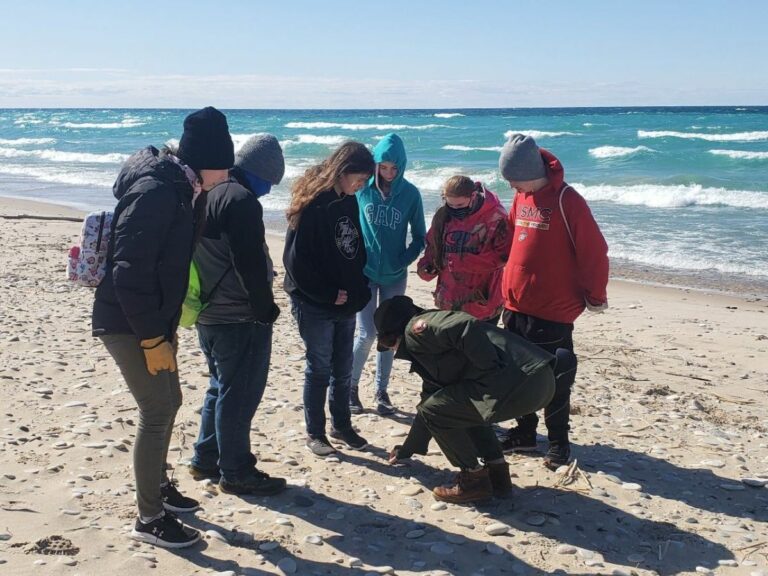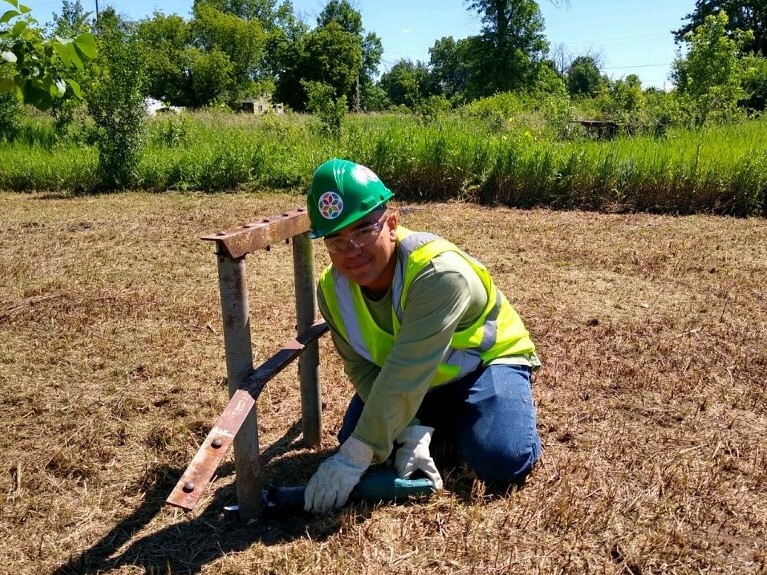By Sarna Salzman, SEEDS Executive Director
Traverse City Record-Eagle; August 26, 2023
The City of Traverse City is taking another significant step towards a greener future and its commitment to waste reduction, community outreach, and de-carbonization. The City has embarked on a pilot project, adding some food waste to their existing yard waste collection and composting activities. Propelled by a USDA grant and collaborating with an array of dedicated partners, including SEEDS Ecology & Education Centers, this fall the City will expand organic waste management services (see their hauler-partner RFP open now).
“Organic waste” refers to items like food, wood, and some papers that, given the right oxygen-rich conditions, will break down into soil. In landfills, however, organics don’t get mixed with oxygen resulting in the creation of methane, an extremely potent greenhouse gas.
In 2021 SEEDS commissioned a comprehensive Market Analysis on local organic waste streams and diversion opportunities over this 10-county region. In Grand Traverse County, we are sending ~15,000 tons of organics to landfills annually and that results in ~9000 metric tons of carbon dioxide equivalents (MTCO2e is a standard measure for all greenhouse gasses). That’s equivalent to about 2000 (gas powered) cars or the impact of clear-cutting 60 acres of forest – each year. What if we, instead, treasured this trash?
The Market Analysis also underscored a local economic development opportunity: a centralized composting facility near Traverse City that processes at least 8,000 tons of food waste in conjunction with the 5000 tons of yard waste already managed and composted by City staff. A facility like this would result in a county-wide organics landfill diversion rate of well over 50% going well beyond current waste reduction goals set by the State of Michigan and its MI Healthy Climate Plan.
“A facility [like the one proposed by the City of Traverse City] would result in a county-wide organics landfil diversion rate of well over 50 percent going well beyond current waste reduction goals set by the State of Michigan and its MI Healthy Climate Plan.”
— SEEDS Executive Director Sarna Salzman
Composting an additional 8000 tons of food waste would reduce greenhouse gas emissions by over 4600 MTCO2e – that’s like taking 1000 (gas powered) cars off the road or the electricity generated by 1.3 wind turbines. These greenhouse gas emission benefits don’t take into account the positive ripple effects of generating high quality soil amendments, displacing petroleum-based fertilizers, and better materials to prevent erosion and protect water quality.
Though the City’s pilot may be tiny — it will process less than 100 tons of food waste annually — it could be a mighty catalyst for change. It is also an invitation for us all to try the alchemy of trash-into-treasure! Become a home-composter. Eat your leftovers. Get involved with your county; in Michigan all counties will be updating their ‘materials management plans’ and will include policy language for the capture and composting of organic wastes – some for the first time! Let’s help the State of Michigan with its goal of supporting more circular economies – economies that are fueled by treasuring our trash.
The future we want — where our community is healthier, more climate resilient, safer and more fun for all — is within our grasp, but it requires us to step up and speak out, in our own way, for solutions that symbolize and catalyze our boundless potential for change.
About Sarna Salzman

Sarna Salzman, MS is the founding Executive Director of SEEDS Ecology & Education Centers. She spear-heads organizational work in community-scale “systems change” and, since 2018, the development of its Organic Waste Diversion programming, currently convening a multi-stakeholder task force of partners across the 10-county region working to transform Michigan by diverting organics.




